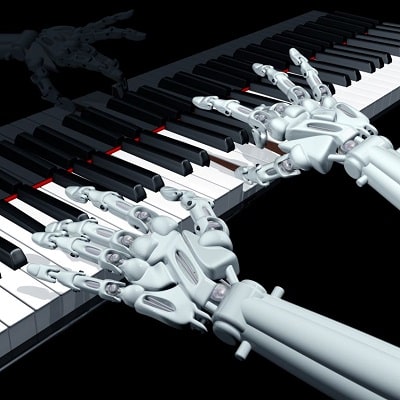Artificial intelligence (AI) has been gaining momentum in the music industry in recent years, with the technology being used in a variety of ways to help create music. One of the most important uses of artificial intelligence in music is to create original compositions.
One of the earliest examples of AI-generated music was the “Iamus” experimental project, developed by a team of Spanish researchers in 2011. The system was capable of composing music in a wide range of styles, from classical to pop, and even released a full-length album that was well received by the audience.
Another way to use artificial intelligence in music production is through the use of machine learning algorithms. These algorithms can analyze large amounts of music data and identify patterns and trends that can then be used to create new compositions. This has led to the development of music production software such as Amper Music, which allows users to create their own tracks by selecting different styles, instruments, and tempos.
AI in and mixing music
Software such as AIVA (Artificial Intelligence Virtual Performer) can compose, arrange and produce tracks by taking into account many factors such as rhythm, harmony and melody. Likewise, software like Landr uses artificial intelligence to automatically master tracks, ensuring they are high quality and ready for release.

Setting Up New Device Controllers with AI
For example, Google’s AI Duet allows users to play a virtual piano and improvise along with an artificial performer. Similarly, scientists at the Georgia Institute of Technology have created an artificial intelligence guitar that can improvise and generate new music in real time.
Artificial intelligence is also being used in the music industry to help with music analysis and search, such as identifying music in TV shows, movies, and commercials. This allows music executives to quickly identify the right song for a particular scene, and also helps music publishers and record labels track their catalog usage and identify new sources of revenue.
Conclusions:
The use of artificial intelligence in music production is expanding rapidly and it is clear that the technology has the potential to revolutionize the way music is composed, produced and consumed. From creating original compositions to helping with the production and mixing process, AI is proving to be a valuable tool for both musicians and music industry professionals.

